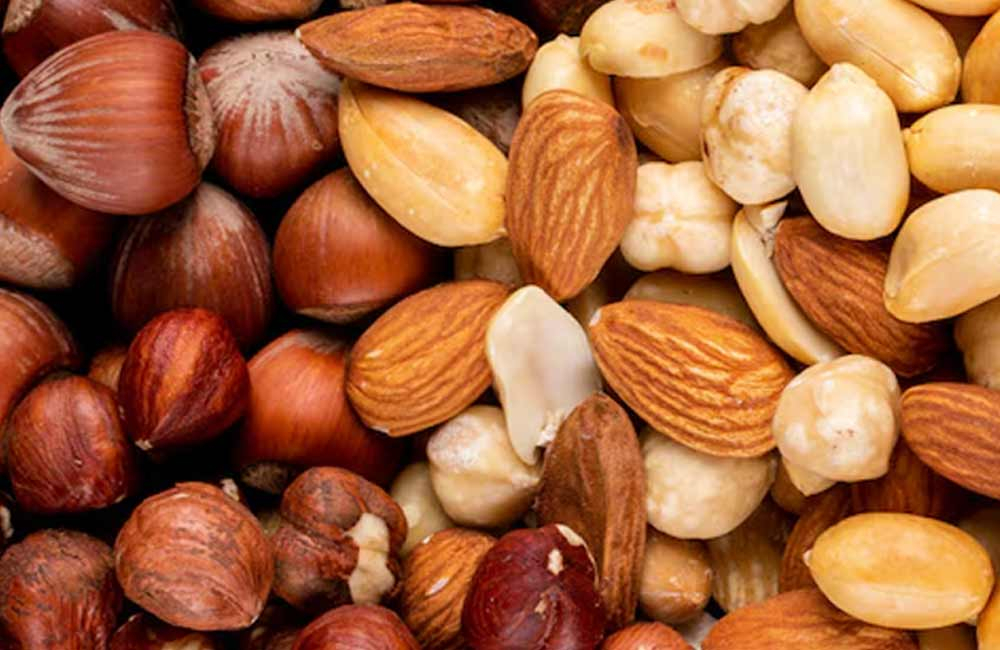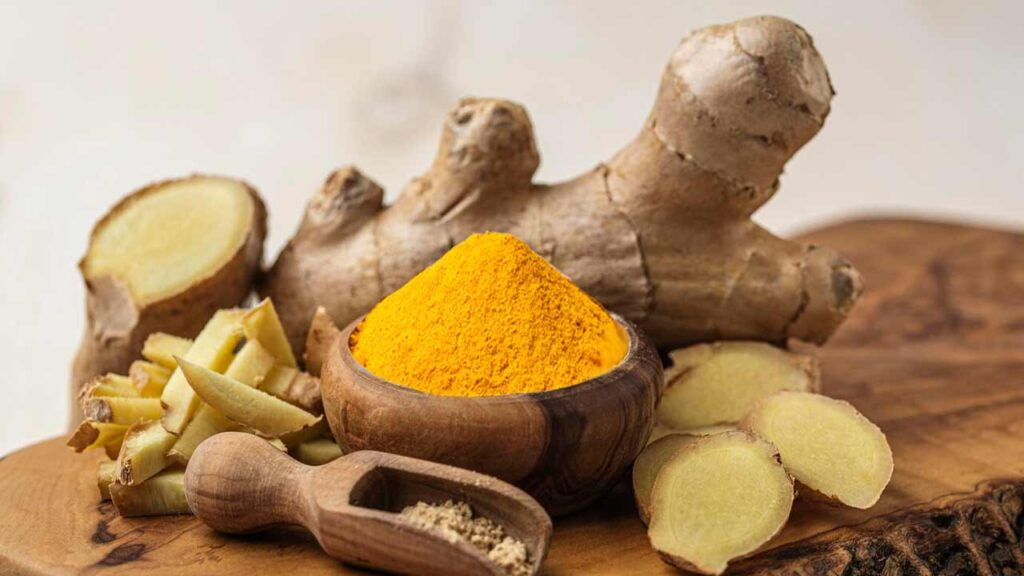Your brain consumes about 20% of your daily calories, making nutrition crucial for optimal mental performance. While many factors influence cognitive health, certain foods can provide immediate benefits to your brain function. These superfoods work by enhancing blood flow, reducing inflammation, and supplying essential nutrients that support neurotransmitter production.
Research shows that what you eat directly impacts your ability to think clearly, remember information, and maintain focus throughout the day. The following ten superfoods have been scientifically proven to boost brain function, often within hours of consumption.
Blueberries: Nature’s Memory Enhancer

Blueberries earn their reputation as a brain superfood through their high concentration of anthocyanins—powerful antioxidants that cross the blood-brain barrier. These compounds protect brain cells from oxidative stress and inflammation, two major contributors to cognitive decline.
Studies reveal that people who eat blueberries regularly show improved memory performance and delayed age-related cognitive decline. The antioxidants in blueberries also enhance communication between brain cells, leading to better learning and memory formation.
How to incorporate blueberries:
- Add fresh blueberries to your morning oatmeal or yogurt
- Blend frozen blueberries into smoothies for a convenient brain boost
- Mix dried blueberries into trail mix for an afternoon snack
- Bake blueberry muffins using whole grain flour for sustained energy
Turmeric: The Golden Spice for Mental Clarity

Turmeric contains curcumin, a compound with potent anti-inflammatory and antioxidant properties. This golden spice helps reduce brain inflammation, which can impair cognitive function and memory formation. Curcumin also increases levels of brain-derived neurotrophic factor (BDNF), a protein that promotes the growth of new brain cells.
Research indicates that regular turmeric consumption may improve attention span and reduce the risk of neurodegenerative diseases. The spice works quickly, with some studies showing cognitive improvements within just a few hours of consumption.
How to incorporate turmeric:
- Add turmeric powder to scrambled eggs or omelets
- Prepare golden milk by mixing turmeric with warm almond milk
- Season roasted vegetables with turmeric and black pepper
- Take curcumin supplements with meals for maximum absorption
Fatty Fish: Essential Omega-3 Powerhouse

Fatty fish like salmon, mackerel, and sardines provide omega-3 fatty acids, particularly DHA (docosahexaenoic acid), which makes up 40% of brain tissue. These essential fats support brain structure, improve neurotransmitter function, and enhance memory formation.
Regular consumption of fatty fish has been linked to reduced risk of cognitive decline and improved mental performance. The omega-3s in fish also help reduce inflammation and support the growth of new brain cells.
How to incorporate fatty fish:
- Grill salmon with herbs for a brain-healthy dinner
- Add canned sardines to salads or pasta dishes
- Prepare fish tacos using mackerel or herring
- Include smoked salmon in breakfast omelets or bagels
Dark Chocolate: Sweet Focus Enhancement

Dark chocolate containing at least 70% cacao provides flavonoids that improve blood flow to the brain. These compounds enhance cognitive function, particularly attention and memory, within hours of consumption. Dark chocolate also contains small amounts of caffeine, which can provide an immediate mental boost.
The flavonoids in dark chocolate protect brain cells from damage and support the formation of new neural connections. This makes dark chocolate an excellent choice for immediate cognitive enhancement.
How to incorporate dark chocolate:
- Enjoy 1-2 squares of dark chocolate as an afternoon treat
- Add cacao powder to smoothies or protein shakes
- Mix dark chocolate chips into homemade trail mix
- Prepare hot chocolate using unsweetened cocoa powder
Nuts and Seeds: Vitamin E Protectors

Nuts and seeds provide vitamin E, healthy fats, and protein that support brain health. Almonds, walnuts, sunflower seeds, and pumpkin seeds are particularly beneficial for cognitive function. These foods help protect brain cells from oxidative stress and support neurotransmitter production.
Walnuts deserve special mention as they contain alpha-linolenic acid, a plant-based omega-3 fatty acid that supports brain health. Regular nut consumption has been associated with improved memory and reduced cognitive decline.
How to incorporate nuts and seeds:
- Snack on mixed nuts during work breaks
- Add chopped walnuts to oatmeal or yogurt
- Sprinkle sunflower seeds on salads
- Make homemade nut butter for sandwiches
Avocados: Healthy Fats for Brain Power

Avocados provide monounsaturated fats that support healthy blood flow to the brain. These creamy fruits also contain folate, which helps prevent cognitive decline and supports neurotransmitter production. The healthy fats in avocados help your body absorb fat-soluble vitamins from other foods.
The potassium in avocados helps regulate blood pressure, ensuring optimal blood flow to the brain. This combination of nutrients makes avocados an excellent choice for immediate and long-term brain health.
How to incorporate avocados:
- Spread mashed avocado on whole grain toast
- Add sliced avocado to salads and sandwiches
- Blend avocado into smoothies for creaminess
- Prepare guacamole with brain-healthy herbs
Leafy Greens: Folate and Nitrate Boost

Leafy greens like spinach, kale, and arugula contain folate, vitamin K, and nitrates that support brain function. These nutrients help improve blood flow to the brain and support the production of neurotransmitters. The nitrates in leafy greens can provide cognitive benefits within hours of consumption.
Research shows that people who eat leafy greens regularly have slower rates of cognitive decline and better memory performance. The combination of vitamins and minerals in these vegetables supports overall brain health.
How to incorporate leafy greens:
- Add spinach to smoothies without affecting taste
- Prepare kale chips as a crunchy snack
- Use arugula as a base for salads
- Sauté leafy greens with garlic as a side dish
Eggs: Choline for Memory Support

Eggs provide choline, a nutrient essential for producing acetylcholine, a neurotransmitter involved in memory and learning. The protein in eggs also helps stabilize blood sugar levels, preventing energy crashes that can impair cognitive function.
Egg yolks contain the highest concentration of choline, making whole eggs particularly beneficial for brain health. Regular egg consumption has been associated with improved memory and cognitive performance.
How to incorporate eggs:
- Prepare vegetable-packed omelets for breakfast
- Hard-boil eggs for convenient snacks
- Add eggs to grain bowls or salads
- Make egg-based dishes like frittatas or quiches
Green Tea: L-Theanine and Caffeine Synergy

Green tea contains L-theanine, an amino acid that promotes relaxation without drowsiness, combined with caffeine for sustained focus. This unique combination provides mental clarity and alertness without the jittery effects of coffee. Green tea also contains antioxidants that protect brain cells from damage.
The L-theanine in green tea helps reduce stress and anxiety while improving attention and memory. This makes green tea an excellent choice for immediate cognitive enhancement.
How to incorporate green tea:
- Replace afternoon coffee with green tea
- Prepare iced green tea for hot weather
- Add green tea powder to smoothies
- Enjoy green tea as a morning or evening ritual
Broccoli: Vitamin K and Antioxidants

Broccoli provides vitamin K, which supports cognitive function and improves memory. This cruciferous vegetable also contains antioxidants and compounds that reduce inflammation in the brain. The vitamin K in broccoli helps support brain health and may protect against cognitive decline.
Broccoli also contains choline and folate, nutrients that support neurotransmitter production and brain development. Regular consumption of broccoli and other cruciferous vegetables has been linked to better cognitive performance.
How to incorporate broccoli:
- Steam broccoli and season with lemon juice
- Add broccoli to stir-fries and pasta dishes
- Roast broccoli with olive oil and garlic
- Include raw broccoli in salads and crudité platters
Transform Your Brain Health Through Nutrition
These ten superfoods offer immediate and long-term benefits for brain function. By incorporating them into your daily diet, you can enhance memory, improve focus, and protect against cognitive decline. Start by adding one or two of these foods to your meals each day, then gradually increase variety.
Remember that consistency matters more than perfection. Even small changes to your diet can provide significant cognitive benefits over time. Combine these brain-boosting foods with regular exercise, adequate sleep, and stress management for optimal brain health.
Your brain deserves the best nutrition possible. Make these superfoods a regular part of your diet and experience the difference in your mental clarity, memory, and overall cognitive performance.
FAQs
How quickly do these superfoods improve brain function?
Some foods, like dark chocolate and green tea, can provide a noticeable boost in focus and mental clarity within 1-2 hours due to their caffeine and flavonoid content. Others, like fatty fish and turmeric, support long-term brain health but may take consistent consumption (days to weeks) for optimal effects.
Can I eat these foods all at once, or should I space them out?
While you can combine them, spacing them throughout the day ensures steady energy and nutrient absorption. For example:
– Morning: Eggs + avocado toast + green tea
– Afternoon: Blueberry smoothie + nuts
– Dinner: Salmon + broccoli + turmeric-spiced veggies
Are frozen or fresh blueberries better for brain health?
Both work! Frozen blueberries retain most of their nutrients and antioxidants, making them a convenient, budget-friendly option. Fresh berries are great when in season, just prioritize organic to avoid pesticides.
I don’t like fish. How can I get omega-3s for my brain?
Try:
– Algal oil supplements (vegan DHA source)
– Flaxseeds, chia seeds, or walnuts (plant-based omega-3s)
– Omega-3-fortified foods (some eggs, milks, or yogurts)
How much dark chocolate should I eat for brain benefits?
Aim for 1–2 squares (20–30g) of 70%+ dark chocolate daily. More isn’t necessarily better—it’s still calorie-dense, and excess sugar can counteract benefits.
Are there any side effects to eating too many brain superfoods?
Moderation is key:
– Too many nuts/seeds: High calories, potential digestive issues.
– Excess green tea: May cause jitters (stick to 2–3 cups/day).
– Overdoing fatty fish: Mercury risk in some fish (opt for wild-caught salmon/sardines).









